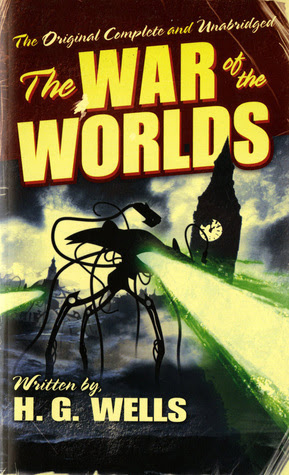
Genre: Adult Fiction (Thriller / Mystery / Science Fiction)
Date Published: April 2, 2024
Publisher: Forge Books

With Extinction, #1 New York Times bestselling author Douglas Preston has written a page-turning thriller in the Michael Crichton mode that explores the possible and unintended dangers of the very real efforts to resurrect the woolly mammoth and other long-extinct animals.
Erebus Resort, occupying a magnificent, hundred-thousand acre valley deep in the Colorado Rockies, offers guests the experience of viewing woolly mammoths, Irish Elk, and giant ground sloths in their native habitat, brought back from extinction through the magic of genetic manipulation. When a billionaire's son and his new wife are kidnapped and murdered in the Erebus back country by what is assumed to be a gang of eco-terrorists, Colorado Bureau of Investigation Agent Frances Cash partners with county sheriff James Colcord to track down the perpetrators.
As killings mount and the valley is evacuated, Cash and Colcord must confront an ancient, intelligent, and malevolent presence at Erebus, bent not on resurrection―but extinction.

Extinction of the first book I’ve read by Douglas Preston, and it didn’t disappoint. I wouldn’t really compare it to Jurassic Park too much, but if you loved Jurassic Park you’ll like this one. This is more of a mystery. Who’s the bad guy/bad guys? In Jurassic Park, the enemy was always clear, because they weren’t the main point of the story. In Extinction, the story starts with mysterious killings, and it builds from there. I loved the imagery of the mammoths and other prehistoric mammals. It was written beautifully.
This story was very well told. Especially since it was told from multiple perspectives which can sometimes get messy. This one was put together nicely. It did drag in areas, but when it was going, it really went. There were brutal bits, but they were mainly left to the imagination rather than a full description. Sometimes less is more, and while I’m not one to get queasy, I feel like if you do, this style wouldn’t be as hard on you. It was interesting! You can tell the author did some research here, and that makes it all the better.
Even though it never ends well, fictionally speaking, I’ve gotta say I’d line up to see these creatures. Dinos. Mammals. It’d be worth the risk to see them. Sign me up!

Olivia lay in the dark, Mark breathing softly next to her. The night was still, without the breath of breeze, the silence profound. It had dropped below freezing, but their sleeping bags were super warm, and she was used to camping in alpine weather. Her dad had taken her and her brothers camping in the Wasatches and Manti-La Sal in all seasons, sometimes on cross-country ski trips in the dead of winter in ten-foot-deep snow and nights to twenty below. God, she missed him. Mark was a little like that, unintimidated by wilderness conditions, totally cool with anything nature might throw at him. The first thing she did with any new boyfriend was go camping. So many of them, despite their big talk, failed the test — all it took was a little rain or snow, a swarm of mosquitoes, or a rattler, and they were in a panic. Or they just didn’t have a wilderness sense — like casually leaving trash or pissing too close to a stream or not knowing how to set up a tent.
She shifted her body, not feeling the slightest bit tired. The sun set so early in the fall, it was still probably only eight o’clock. She wished she could fall asleep like Mark, who could drop off anywhere, anytime, in five minutes. It was a dark, moonless night. The mammoths would be sleeping in their hollow below them. She listened, wondering if mammoths snored. But she could hear nothing.
Her mind wandered, and she thought of her Olympic medal, sitting in its sock in the back of her underwear drawer in Salt Lake. All those years of work, struggle, risks, crashes, injuries, surgery, rehab, recovery, more work, more struggle — and finally Pyeongchang. All that work had been squeezed up and stamped in a piece of bronze sitting in the back of her drawer. Mark had been upset that she wouldn’t frame it and hang it with a picture of her receiving it on the stand. Why would she? She hated even looking at it.
It would be different for her child. Son or daughter, it didn’t matter. He or she wouldn’t make the mistakes she’d made. Olivia had been through it all and knew now how the system worked and what had to be done, and she could guide her child to something a whole lot better than bronze.
She suddenly was hyperalert, tense. She heard a sound. A strange plucking sound. Mark was instantly awake too. And then it started, the loud tearing sound of the tent fly, like it was being cut.
“What the f***?” Mark sat up like a shot.
She pulled a headlamp out of the tent pocket and switched it on. She shined it through the mosquito netting of the inner tent to reveal a long, ragged cut in the outer fly.
“What was that?” said Mark. “A branch?”
“There’s no wind,” Olivia said.
“You think it’s a bear?” he said.
“They said the bears had been removed.”
“Yeah, but one could have wandered back in over the mountains.”
Olivia wondered. Maybe it was an animal, smelling the humans inside and reaching out to scratch the fly just to see what it was.
They listened, but the silence was total.
“I’m going out,” said Mark.
“No, wait.”
“I’m not waiting. If it’s a cat or bear, we’d better drive it away. We can’t wait for it to come in here.”
He took the headlamp from her, put it on, and pulled his buck knife from its sheath, before slipping out of the bag. He was wearing Capilene full-body long johns. He went to the tent door and unzipped it.
He paused. No sound. Then he stuck his head outside the door.
“See anything?”
“Nothing.”
She was filled with uncertainty. It could be a mountain lion in wait. Maybe it ran off when they turned on the headlamp. But Mark was right: they couldn’t just cower in the tent. They had to do something. Calling out for the guide would only put him in a place of danger, and besides, asking for help from the guide ran against her wilderness ethic.
She felt around and grasped her own knife and put on her own headlamp but didn’t turn it on yet.
“Okay, I’m going out,” he said, and slipped out into the dark.
She could see the glow of his light indistinctly through the tent fabric as he swept the area. She tensed, gripping her own knife.
The glow quietly moved about for a long thirty seconds. She heard him suddenly grunt—a weird sort of snort — and there was the sound of spilling liquid, and the glow vanished.
“Mark?” Olivia cried. “Mark!”
No sound.
She sprang to the tent flap and looked out, turning on her headlamp and sweeping the area with the light. There was his knife, on the ground. Nearby lay his headlamp in the grass, still lit.
“Mark!” she screamed. “Mark! Hey, we need help here!” she cried, leaping out of the tent, gripping the knife. She stopped where he had dropped his knife and headlamp and stared at the ground in horror — just as she felt something strike the back of her neck and slide in, crunching the bone and going through it, as hot as fire and cold as ice at the same time.


To learn more about Douglas Preston and his books, visit his website. You can also find him on Goodreads, Facebook, and YouTube.
Buy this book at:











































